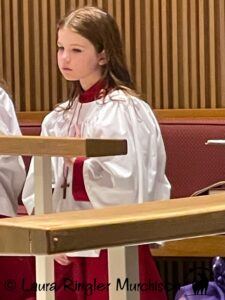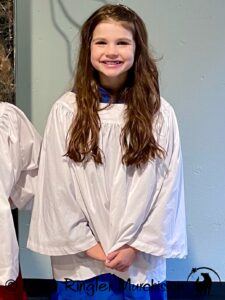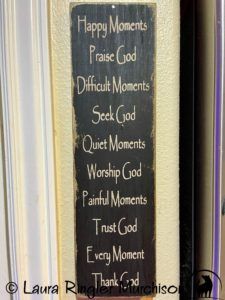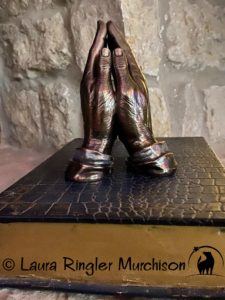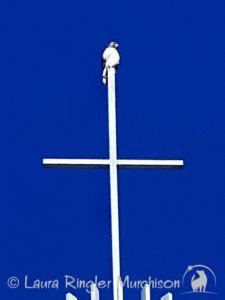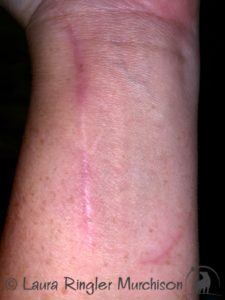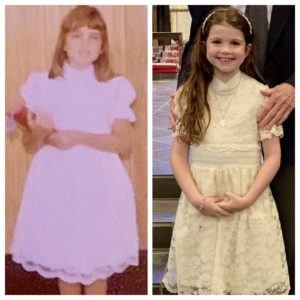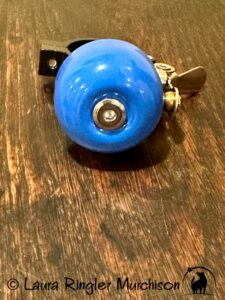
Someone whom I have always greatly admired, the late great Helen Keller, once said, “Your success and happiness lies in you. Resolve to keep happy, and your joy and you shall form an invincible host against difficulties.” On this, the first day of the New Year, many have made resolutions. The difference between a resolution and a resolve is different. A resolution is defined as a decision to do or NOT to do something. To resolve means a firm determination to DO something. I am continually striving for the positive. So, for instance, I would rather say I am going to eat more vegetables instead of adding a negative by declaring, “I am NOT eating sweets.” It may seem like semantics, but I have always believed in the power of words as well as their importance. A couple of weeks ago I fractured some toes on my right foot. My big toe especially has hurt a lot ever since but I figured it would get better. Our wise eleven-year-old said I had better go have it checked out because it could get even worse; turns out she was right. Apparently the lower knuckle bone is resting on top of my upper one (right underneath my big toe nail) and the doctors say I need surgery to correct it. If not they say I will be affected in years to come not just with arthritis but with stability, balance, and all sorts of other things. I have been told I cannot drive or bear weight on it for potentially three months in order for it to properly heal. At present they are undecided if I will have a plate, pins, or what. My inner “Negative Nelly” started whining, “What about your exercise regimen you were about to start?!” and “How can I work if I cannot drive?!” “How will I get my child hone from school??” “How am I supposed to walk our wolf dog!!” I tried to stifle my negative thoughts as my little one and I were going to lunch with my father-in-law. Entering the restaurant, I noticed an older lady with twinkling eyes, a bright smile, and uproarious laughter seated at a table to my left. I also saw the huge boot she had sticking out awkwardly and hollered, “HEY!” as I waggled my surgical shoe at her. “Hey!” she greeted me like a lost friend. We immediately began a deep dive into tendons in our feet, things fusing, and procedures. She told me she was a week and a half out of surgery with over six more to go with no weight-bearing on it. I informed her I had a break that was starting to fuse badly and that my surgery was the following week. During our conversation not once did I hear her express ANYthing but gratitude. And then I thought to myself: “What is wrong with you??” I have a friend who just lost two of his toes to diabetes. I have another who has never even had the use of her feet. Two other close girlfriends of mine have both endured a lot of really difficult surgeries over the past several years. I silently chastised Negative Nelly and brought out Positive Polly instead. After our meals this woman and I happened to leave at the same time and we wished each other well. As she zoomed down the disabled ramp on her knee scooter she gleefully rang an old-school bike bell she’d attached to it. Those three rings made my day. A girlfriend of mine just gave me a beautiful bell (pictured above) this Christmas for my bike. I found myself looking forward to first putting it on my knee scooter, provided I’ll need one. Beginning this year, with the good and the bad, I am reminding myself to put a bell on it.

